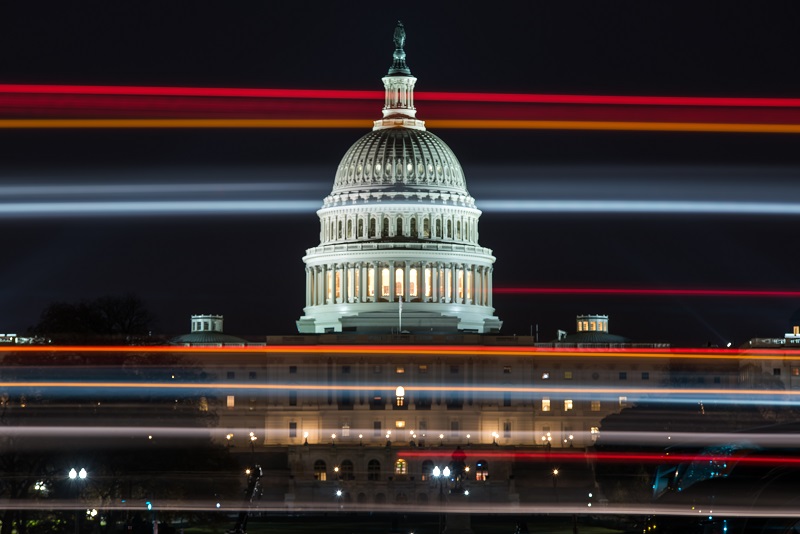The United States Senate today provided the nod to restoring net neutrality guidelines that would prevent ISPs from controlling access to certain websites.But obstructions stay, even as the legislation is pushed on the fast lane to a Home vote: Bigwig ISPs, independent ISPs, small businesses, Democrats and Republicans are all continuing to butt heads over the questionable regulations. Mozilla Joins U.S. Lawyer General In Bid to Restore Net Neutrality Telcos Singled Out for Prioritizing Federal Government Demands for Data Over Privacy< a href=https://threatpost.com/erosion-of-isp-privacy-rules-sparks-new-anti-snooping-efforts/126300/ title="Permalink to Erosion of ISP Personal Privacy Rules Sparks New Anti-Snooping Efforts"rel=bookmark > Erosion of ISP Privacy Rules Triggers New Anti-Snooping Efforts”The main challenge is that the size of the Home of Representatives suggests more people are had to get the bulk required to pass the costs,”Katharine Trendacosta, policy expert for the Electronic Frontier Structure, informed Threatpost.Net neutrality ensures that ISPs do not discriminate versus various kinds of internet material. Understood as the Open Web Order, passed 3 years earlier throughout the Obama-era, the rules forbid
ISPs from blocking, throttling or discriminating versus any internet material, and from establishing a pay-to-play scheme that requires material suppliers to pay for the benefit of transmission.The 52-47 Senate vote on Wednesday follows months of anticipation after the Trump administration in December signed an order repealing the Open Web Order. The repeal is scheduled to work on June 11. On the heels of the repeal, the
Federal Communications Commission(FCC)sent a replacement called the Mending Internet Liberty Order, which
returned the web policies “to the conventional light-touch structure that remained in place up until 2015,”inning accordance with the regulator. Activists, innovation groups and political gamers on both sides have clashed over the net neutrality laws. Up to 23 U.S. Attoneys General, in addition to tech business like Mozilla, Reddit and Etsy, have actively opposed the repeal of net neutrality. Their concern is that missing such regulation, ISPs could deny access to cloud-delivered services that take on their own offerings. Companies like Comcast or Verizon, which are big ISPs as well as pay-TV companies, could throttle services like Hulu or Netflix in order to offer their own video services a much better experience for customers. Advocates also argue that paid prioritization(“quick lanes”)might also be utilized as a competitive tool to drive smaller and start-up excessive and cloud application suppliers out of company, who might not be able to pay for carriage.” We will continue to defend net neutrality in every way possible as we aim to safeguard against erosion into an inequitable internet, with eventually a far even worse experience for any users and businesses who don’t pay more for unique treatment,” stated Denelle Dixon, chief operating officer at Mozilla, in a statement after the Senate vote.On the opposite of the coin, the 2015 net neutrality regulations have been opposed by big ISPs like Comcast, AT&T and Verizon. Challengers of net neutrality argue for a market-based approach and claim the guideline is overreach.” This vote tosses into reverse our shared goal of keeping an open, thriving web,”stated Jonathan Spalter the president and CEO of USTelecom, an organization that represents telecommunications-related organisations
like AT&T and Verizon.”Consumers desire permanent, detailed online securities, not half steps or election year posturing from our representatives in Congress. While we are disappointed by this vote, broadband companies remain dedicated to protecting the digital lives of consumers and advancing bipartisan legislation that codifies net neutrality concepts throughout the online world.”Ajit Pai, the Republican chairman of the FCC who penned the Restoring Internet Flexibility Order launched in January, likewise called the Senate vote”frustrating “and an impediment to a”free and open “internet.”It’s disappointing that Senate Democrats forced this resolution through by a narrow margin. Eventually, I’m confident that their effort to reinstate heavy-handed government guideline of the web will stop working,”stated Pai in a declaration after the vote.” The web was complimentary and open before 2015, when the previous FCC buckled to political pressure from the White House and imposed utility-style regulation on the Web. And it will continue to be free and open once the Improving Internet Liberty Order works on June 11. “On The Other Hand, Senate Democrats like Sen. Ed Markey(D-MA)likewise required to Twitter to express assistance of the restoration of the Open Internet Order.Celebrate today’s historical #NetNeutrality victory in the Senate. But the battle in the Home starts TOMORROW. Make certain your agent knows how you feel about< a href="https://twitter.com/hashtag/NetNeutrality?src=hash&ref_src=twsrc%5Etfw "> #NetNeutrality.– Ed Markey (@SenMarkey) May 17, 2018 Nevertheless, with the 2018 midterm elections looming in November, these efforts might be seen merely as a political approach to rally both parties.The procedure has to win a bulk vote, or 218 votes, in a Home where Republican politicians dominate; and to get a signature from President Donald Trump, who supports the FCC’s action.For the meantime, Trendacosta argues that the vote at least sets the guideline for future net neutrality legislation:”It assists develop a flooring,” she told Threatpost. “The Senate voted to keep a guideline that prohibited stopping, throttling and paid prioritization. That need to send a message that any expense they think about in the future must at
least
